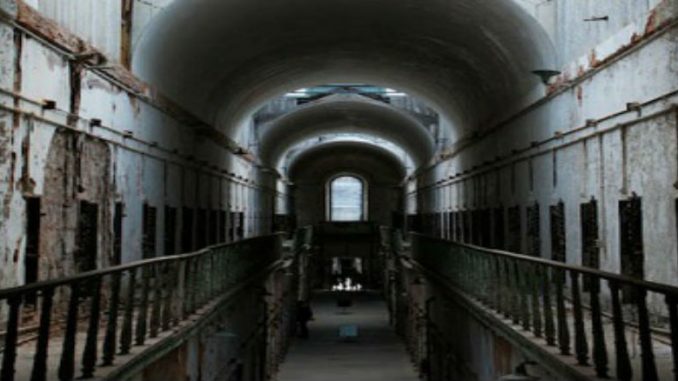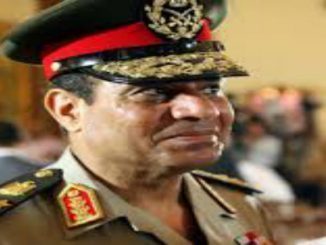
Russian security officers have been acting in Egypt since the beginning of 2014, according to an exclusive report by Arabi 21 news website citing special security sources. he source said the Russian officers, along intelligence and military entities, participate in investigating Islamic detainees accused of issues related to the Muslim Brotherhood, as well as groups accused of practicing “violence”.
An Egyptian security source confirmed that Russian officers have been present in Egypt for nearly three years in the framework of what is called “extensive security coordination” between the Egyptian intelligence and security agencies and their Russian counterparts.
The source added that the arrival of Russian security officers to the country began in early 2014, when Major General Abbas Kamel, the head of Abdel Fattah al-Sisi’s office when the latter was minister of defense, was assigned to coordinate this file.
According to the source, who used to work in a high ranking Egyptian security agency but refused to reveal its identity, the Russian officers have conducted several investigations with Islamist defendants in several cases, including the Muslim Brotherhood, as well as cases that are related to the Islamic State (IS) group.
Participating in Torture
The source explained that the Russian officers’ work was implemented through several mechanisms. “Sometimes they would present to the Egyptian investigators in the national security department the questions that are supposed to be answered by prisoners.” He added, “Sometimes they attend the investigations and participate directly via interpreters. They also practiced torture by themselves against some detainees.”
The former Egyptian security official confirmed that the leaders of the Russian officers work at the headquarters of the ministry of the interior in Nasr City, east of Cairo, and they have headquarters in buildings related to the military intelligence service, but their direct coordination is conducted through the military intelligence and the general intelligence agencies.
He also stressed that the presence of the Russian security officers increased in Egypt after the crash of a Russian passenger airliner over Sinai Peninsula.
The security source also unveiled that the Russian officers move among Egypt’s prisons to interrogate detainees, pointing that in many cases prisoners were transferred to Al-Azouly Prison, in al-Ismailia province, from other prisons to be interrogated by Russian investigators.
He noted that the cases that the Russians have joined their investigations were related to the Libyan and Syrian files.
It is worth to mention that the abuses and human rights violations, in notorious al-Azouly military prison inside al-Galaa Military camp in Ismailia, were documented by rights group.
According to a previous report by Amnesty International, prisoners were being held at one secret prison called Al Azouly, including military detainees facing trial.
Most civilians were from the Sinai Peninsula. That is the restive eastern region which was filled with political opposition since the military rulers ousted Morsi, Egypt’s first democratically elected president.
The detainees at Al Azouly are barred from seeing lawyers or family members. “It means that we are in a country that is not subject to the rule of law, and that authorities that do the torture and the detention are enjoying impunity,” said Aida Seif El-Dawla of the El Nadeem Center for Rehabilitation of Victims of Violence. “It’s a horror story.”
The Egyptian activists also said that security officials illegally holding detainees, in al-Azouly or other site, can commit crimes without repercussion. In addition to military-run sites, people have been held illegally at riot police camps, offices of the country’s National Security Agency and police stations.
Discontent among some security leaders ignored
The source said that some Egyptian security leaders, who work in sensitive entities, have expressed their objection against enabling the Russian officers to obtain extremely significant information from the detainees, as it constitute a real threat to the Egyptian national security,” stressing that most of those leaders were dismissed from their positions later on.
The information revealed by the security source was confirmed by former Egyptian detainees who were investigated by the Russian officers, according to Arab21.
They said that they were interrogated by Russian officers inside the security headquarters related to the Interior ministry’s national security department via interpreters who used to translate their confessions.
According to the testimony of the former detainees, the Russian officers have practiced torture over a large number of detainees using “very brutal methods.”
Russia’s Military Presence in Egypt
In March, Reuters published exclusive report saying that Russia appears to have deployed special forces to an airbase in western Egypt near the border with Libya in recent days, U.S., Egyptian and diplomatic sources say, a move that would add to U.S. concerns about Moscow’s deepening role in Libya.
According to U.S. and diplomatic officials, the Russian deployment would be part of a bid to support Libyan military commander Khalifa Haftar who suffered a massive blow after he lost control over oil terminals on Libya’s Mediterranean coast following an attack by the Benghazi Defense Brigades (BDB) on March 3.
“The United States has observed what appeared to be Russian special operations forces and drones at Sidi Barrani, about 60 miles (100 km) from the Egypt-Libya border, “said U.S. officials, who spoke on condition of anonymity.
Moreover, an Egyptian security sources gave more detailed information describing a 22-member Russian special forces unit, but declined to discuss its mission. In addition, they also said that Russia used another Egyptian base farther east in Marsa Matruh in early February.
In fact, the apparent Russian deployments have not been previously reported. Reuters reported that Russian defense ministry did not immediately provide comment and Egypt denied the presence of any Russian contingent on its soil.
Egyptian army spokesman Tamer al-Rifai said, “There is no foreign soldier from any foreign country on Egyptian soil. This is a matter of sovereignty.”
The Egyptian sources said that the Russian military aircraft flew about six military units to Marsa Matrouh before the aircraft continued to Libya about 10 days later.
Although the reports about Russia’s special forces deployed to an airbase in western Egypt were not confirmed, but there are strong indications that such possibility could be true.
First, Russia has been deepening its relations with Egypt since Abdel Fattah al-Sisi reached power in a military coup in 2013. Last October, the two countries held joint military exercises for the first time – something the U.S. and Egypt did regularly until 2011.
At that time, Russia’s Izvestia newspaper said that Moscow was in talks to open or lease an airbase in Egypt.
However, Egypt’s state-owned Al Ahram newspaper, quoted the presidential spokesman as saying Egypt would not allow foreign bases. “There was no official agreement on the Russian use of Egyptian bases. There were, however, intensive consultations over the situation in Libya,”according to Egyptian sources.
Second, al-Sisi is known for his strong support to Haftar. It was previously reported that Egypt’s al-Sisi sent weapons to Libya’s military strongman, in addition to military personnel, in order to train the Libyan National Army, Haftar’s militias.
Third, Haftar regained back the oil terminals on Libya’s Mediterranean coast after media outlets reported that an emergency meeting was held between Haftar and both Egyptian and Russian representatives in Cairo
An Egyptian diplomatic source said that Haftar was invited to attend an emergency military meeting in Cairo, also set to include Russian and Emirati representatives, in the coming days.
According to the diplomatic source, the meeting is set to be headed by the chief of staff of the Egyptian Army Mohammad Hegazi, and will seek to develop a clear vision to enable Haftar to retake al-Sidra and Ras Lanuf.
In fact, the Egyptian Russian relations were enhanced militarily and commercially since al-Sisi came to power. These relations have been enhanced on the political level as both countries share the same stances regarding many issues in the Middle East,on top of them is the Syrian crisis.
This can be clearly reflected in the Egyptian vote in the United Nations in favor of the Russian resolution and against freezing the Russian air force strikes in Aleppo. As a result, many observers believed at that time that the Egyptian vote, which came against Egypt’ Gulf allies,marks a new phase of the Egyptian Russian rapprochement.



